How to Maintain Safety in Online Relationships
In today's digital age, forging connections online can be both exciting and daunting. With just a few clicks, you can meet people from all over the world, share experiences, and even form lasting relationships. However, amidst the thrill of online interactions, it’s crucial to prioritize your safety. Have you ever wondered what steps you can take to ensure that your online relationships are not only enjoyable but also secure? This article explores essential strategies for ensuring safety in online relationships, highlighting key precautions and best practices to protect your personal information and emotional well-being while connecting with others in the digital space.
Recognizing the various risks associated with online relationships is crucial. The internet can be a wild west of sorts, where anonymity can lead to dangerous situations. You might encounter catfishing, where someone creates a fake identity to manipulate or deceive. Or perhaps you’ll come across scams designed to extract money or personal details from unsuspecting individuals. Moreover, privacy breaches can occur, exposing your sensitive information to malicious actors. By being aware of these potential dangers, you can stay informed and vigilant, ensuring that your online interactions remain safe and enjoyable. It’s like walking through a crowded market; you need to keep your belongings close and be aware of your surroundings.
Developing strong, unique passwords is a fundamental step in online safety. Think of your password as the key to your digital kingdom. If it’s weak, you’re inviting trouble. A strong password should be at least 12 characters long and include a mix of uppercase and lowercase letters, numbers, and symbols. Avoid using easily guessable information like birthdays or pet names. Consider using a password manager to keep track of your passwords securely. This way, you won’t have to remember every single one, and you can generate complex passwords that are hard to crack.
Two-factor authentication (2FA) adds an extra layer of security. It’s like having a second lock on your door. Even if someone manages to get your password, they won’t be able to access your account without the second factor, which is usually a code sent to your phone. This feature is essential for safeguarding accounts against unauthorized access in online relationships. Make sure to enable 2FA on all accounts that offer it, as it significantly reduces the risk of your accounts being compromised.
Not all online platforms are created equal. When looking to build relationships online, it’s important to select reputable websites and apps. Research platforms to ensure they have a good track record in terms of user safety and security. Read reviews and check for any reported incidents of scams or harassment. Choosing reliable platforms is like selecting a safe neighborhood to live in; it can make all the difference in your experience.
Being aware of warning signs in online interactions can prevent harmful situations. Common red flags include:
- Requests for personal information too soon.
- Inconsistent stories or information.
- Pressure to move the conversation to private channels.
- Unwillingness to share their own information.
By staying alert to these behaviors, you can identify potentially dangerous or manipulative individuals before they cause harm.
Establishing and communicating personal boundaries is vital in online relationships. It’s essential to set clear expectations about what you’re comfortable with. Whether it’s the frequency of communication or the types of topics discussed, being upfront can help maintain respect for one another's comfort levels in digital communications. Think of it as creating a safe space where both parties can feel secure and respected.
Safeguarding personal information is crucial in online interactions. Be mindful of what you share, especially in the early stages of a relationship. Avoid disclosing sensitive details such as your home address, financial information, or anything that could be used against you. Instead, focus on sharing general interests or hobbies until you feel more comfortable with the person. Remember, the internet is like a vast ocean; you wouldn’t dive in without knowing what lurks beneath the surface.
Adjusting privacy settings on social media and communication platforms enhances security. Most platforms allow you to control who can see your posts and personal information. Take the time to familiarize yourself with these settings and customize them according to your comfort level. By effectively using these settings, you can control who has access to your personal information and interactions, ensuring a safer online experience.
Knowing when and how to report suspicious activity is essential for safety. If you encounter inappropriate behavior or harassment, don’t hesitate to take action. Most platforms have reporting features that allow you to flag problematic users. Reporting not only protects you but also helps create a safer community for everyone. Think of it as being a good neighbor; if you see something suspicious, it’s your responsibility to speak up.
Q: How can I tell if someone is being genuine online?
A: Look for consistency in their stories and be wary of anyone who avoids sharing personal details.
Q: What should I do if I feel uncomfortable with someone online?
A: Trust your instincts. If you feel uneasy, it's okay to cut off communication and report the user if necessary.
Q: Are there any specific platforms that are safer for online dating?
A: Research platforms with strong safety features and positive reviews. Look for those that prioritize user verification and have robust reporting systems.
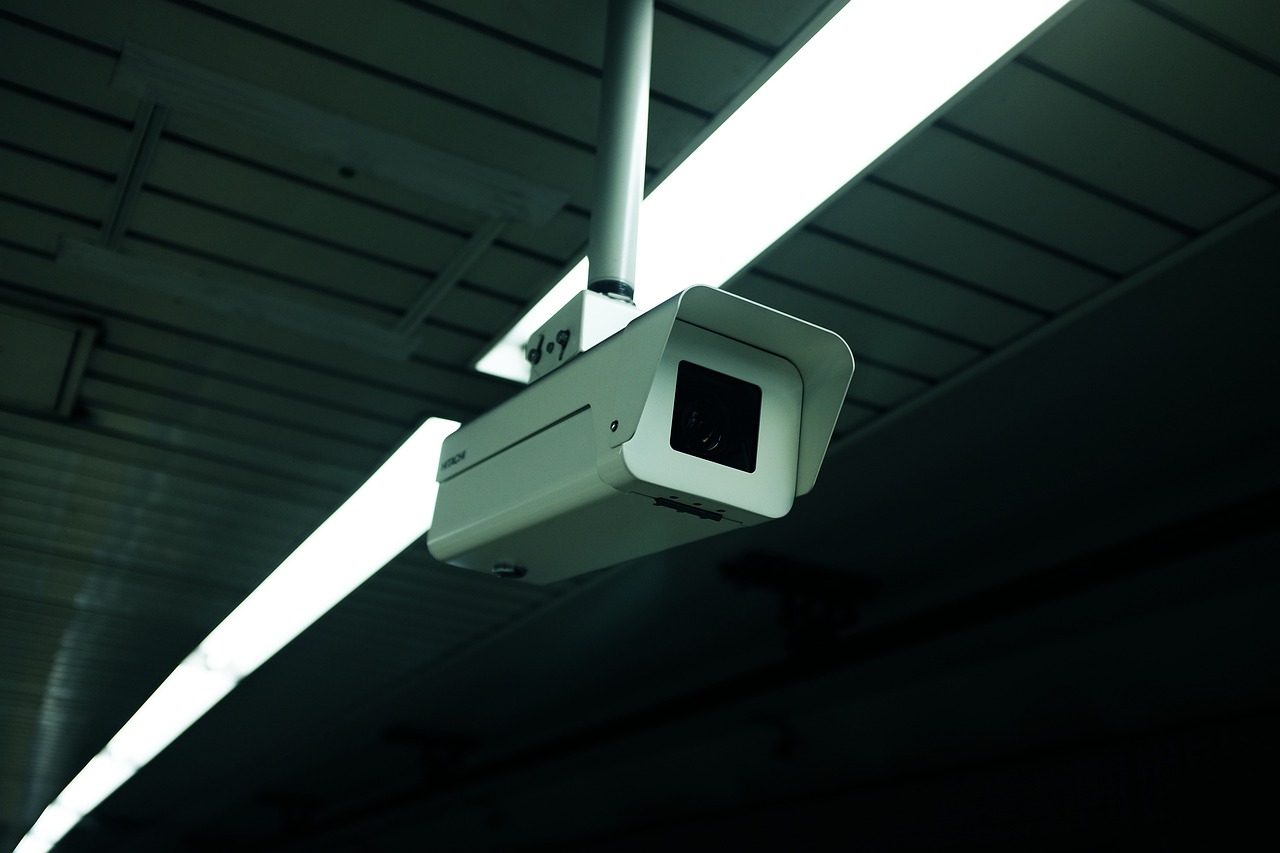
Understanding Online Risks
When it comes to online relationships, understanding the inherent risks is the first step toward protecting yourself. The digital world is a vast space filled with opportunities for connection, but it also harbors potential dangers that can catch even the savviest users off guard. Have you ever heard of catfishing? This is when someone creates a fake identity online to deceive others, often leading to emotional turmoil and even financial loss. It's like meeting someone who claims to be a famous celebrity but is actually just a regular person hiding behind a screen. Recognizing these risks is crucial to navigating the online dating landscape safely.
Another significant risk is falling victim to scams. These can range from romance scams, where someone feigns love to extract money, to phishing scams that trick you into revealing personal information. Imagine investing your heart into a relationship only to find out it was all a ruse designed to exploit your trust. To put it simply, the internet can sometimes feel like a jungle, where not everything is as it seems, and it’s vital to remain vigilant.
Moreover, privacy breaches are a growing concern in the age of social media. With so much personal information shared online, it’s easy for malicious actors to gather data and use it against you. For instance, a seemingly innocent post about your vacation could give away your home’s location, making it vulnerable to break-ins. This is why understanding the landscape of online risks and taking proactive measures is not just wise; it's essential.
To illustrate the various types of online risks, take a look at the table below:
| Type of Risk | Description |
|---|---|
| Catfishing | Creating a false identity to deceive someone, often for emotional or financial gain. |
| Scams | Fraudulent schemes aimed at tricking individuals into giving away money or personal information. |
| Privacy Breaches | Unauthorized access to personal information shared online, leading to potential exploitation. |
By being aware of these risks, you empower yourself to make informed decisions and build healthier online relationships. Remember, it's not just about finding love or companionship; it's about ensuring your safety and well-being in the process. So, next time you engage with someone online, keep your guard up and trust your instincts. If something feels off, it probably is!

Creating Strong Passwords
In the digital age, where our lives are intertwined with technology, creating strong passwords is not just a suggestion; it’s a necessity. Think of your password as the key to your digital kingdom. If that key is weak or easily replicated, you might as well leave your front door wide open. A strong password not only protects your personal information but also helps maintain your emotional well-being in online relationships. So, how do you craft that perfect password? Let's dive into some essential strategies.
First off, a strong password should be unique and complex. Avoid using easily guessable information such as birthdays, names of pets, or common words. Instead, aim for a combination of uppercase letters, lowercase letters, numbers, and special characters. For instance, instead of "password123," consider something like "P@ssw0rd!2023". This mix makes it significantly harder for cybercriminals to crack your password.
Another effective strategy is to use a passphrase. This is a sequence of words or a sentence that is easy for you to remember but difficult for others to guess. For example, "MyDogLovesToPlayFetch!" is much stronger than a simple word. You can even add numbers or symbols to enhance security, like "MyD0gL0ves2PlayFetch!". This method not only increases complexity but also makes it easier to recall.
Moreover, it’s essential to avoid reusing passwords across different sites. Imagine having a single key that opens every door in your house; if that key is lost or stolen, every room is compromised. Similarly, if one of your accounts is hacked and you’ve used the same password elsewhere, you are putting all your other accounts at risk. To keep track of your passwords without overwhelming your memory, consider using a password manager. These tools can securely store and generate complex passwords for you.
Now, let's talk about updating your passwords regularly. Just like you wouldn’t wear the same outfit every day, your passwords should evolve too. Set a reminder to change your passwords every few months. This practice not only helps keep your accounts secure but also fosters a habit of vigilance. If you suspect that your password has been compromised, change it immediately!
In summary, creating strong passwords is about being proactive and mindful. Here’s a quick recap of what to keep in mind:
- Use a mix of letters, numbers, and symbols.
- Consider using a memorable passphrase.
- Never reuse passwords across multiple sites.
- Utilize a password manager for convenience.
- Regularly update your passwords.
By following these guidelines, you can significantly enhance your online security. Remember, your passwords are your first line of defense in maintaining safety in your online relationships. So, take the time to create strong, unique passwords that protect your digital life!
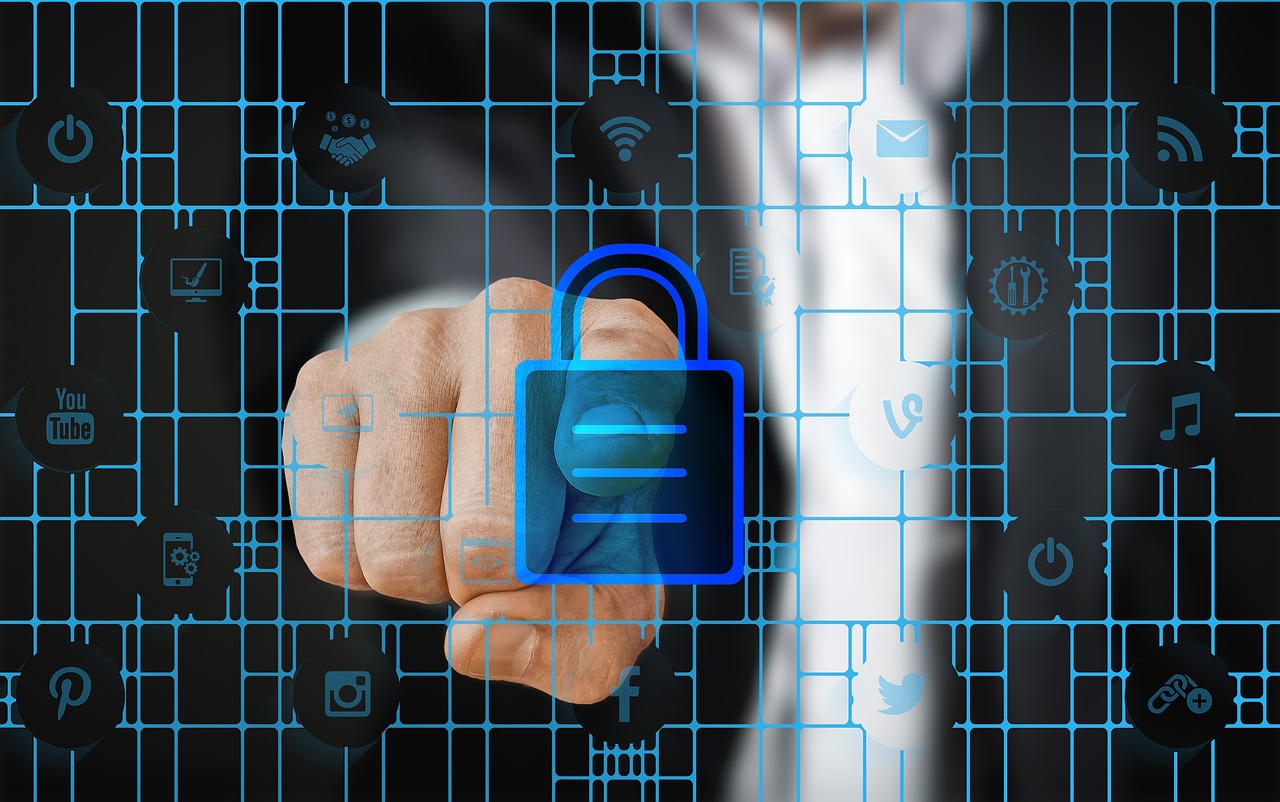
Utilizing Two-Factor Authentication
In today's digital age, where our lives are intertwined with online platforms, security has become more crucial than ever. One of the most effective ways to bolster your online safety is by utilizing two-factor authentication (2FA). But what exactly is it? Imagine you’re trying to enter a secret club. You have your membership card (your password), but the bouncer at the door also asks for a second piece of identification, like a fingerprint or a text message code. This is the essence of 2FA—it requires not just something you know (your password) but also something you possess (a verification code). This extra layer of security makes it significantly harder for unauthorized users to gain access to your accounts.
Many platforms today offer 2FA as a standard feature. It can be set up in just a few minutes, and the peace of mind it brings is definitely worth the effort. When you activate 2FA, you’ll typically receive a code via SMS, email, or an authentication app every time you log in from an unrecognized device. This means that even if someone manages to steal your password, they still won’t be able to access your account without that second form of verification. It's like having a double lock on your door—one is good, but two is even better!
To get started with 2FA, follow these simple steps:
- Go to the security settings of your account.
- Look for the option labeled "Two-Factor Authentication" or "Two-Step Verification."
- Choose your preferred method for receiving codes (SMS, email, or an authentication app).
- Follow the prompts to set it up.
It’s important to note that while 2FA significantly enhances your security, it’s not foolproof. Always remain vigilant and watch out for phishing attempts. Scammers may try to trick you into providing your verification codes. Think of it like a magician performing a trick—always question if what you see is real or an illusion. If you receive a code you did not request, it’s a sign that something might be wrong. In such cases, change your password immediately and check your account for any suspicious activity.
In summary, utilizing two-factor authentication is a straightforward yet powerful step towards protecting your online relationships. By making it a habit to enable this feature on all your accounts, you're not just safeguarding your personal information but also ensuring that your digital interactions remain safe and secure. Remember, in the vast ocean of the internet, it’s always better to be safe than sorry!

Choosing Reliable Platforms
When it comes to building connections in the digital world, choosing the right platform is essential for ensuring your safety and enhancing your experience. The internet is filled with countless websites and apps that cater to different needs, but not all of them prioritize user safety and privacy. So, how do you navigate this vast landscape? First, consider the platform's reputation. Look for well-known names or platforms that have been recommended by trusted sources. You wouldn't want to jump into a relationship on a platform that has a history of scams or poor security measures, right?
Next, take a closer look at the security features offered by the platform. Reliable platforms should have robust security measures in place, such as encryption protocols that protect your data and communications. Always check for features like two-factor authentication and regular security updates, which can significantly reduce the risk of unauthorized access to your account. After all, it's like locking your front door; you want to make sure it's secure before inviting anyone in.
Another important aspect to consider is the community guidelines and moderation policies of the platform. A trustworthy platform will have clear rules against harassment, bullying, and other harmful behaviors. They should also have a dedicated support team that actively monitors user interactions and responds to reports of suspicious activity. This not only helps to create a safer environment but also fosters a sense of community where users feel valued and protected.
Don’t forget to read user reviews and testimonials. These can provide valuable insights into the experiences of others on the platform and help you gauge its reliability. Look for feedback regarding the platform’s customer service, ease of use, and how effectively they handle issues like scams or harassment. Just like checking restaurant reviews before making a reservation, this step can save you from a potentially unpleasant experience.
Lastly, consider the type of interactions the platform promotes. Are you looking for casual chats, serious relationships, or professional networking? Make sure the platform aligns with your goals. For instance, if you're seeking a romantic partner, a dating app designed for that purpose would be more suitable than a general social media site. By aligning your choice with your intentions, you can foster healthier and more meaningful connections.
In summary, choosing a reliable platform is not just about finding a place to meet new people; it's about ensuring your safety and enhancing your online relationship experience. By considering the platform's reputation, security features, community guidelines, user reviews, and the type of interactions it promotes, you can make informed decisions that protect your personal information and emotional well-being.
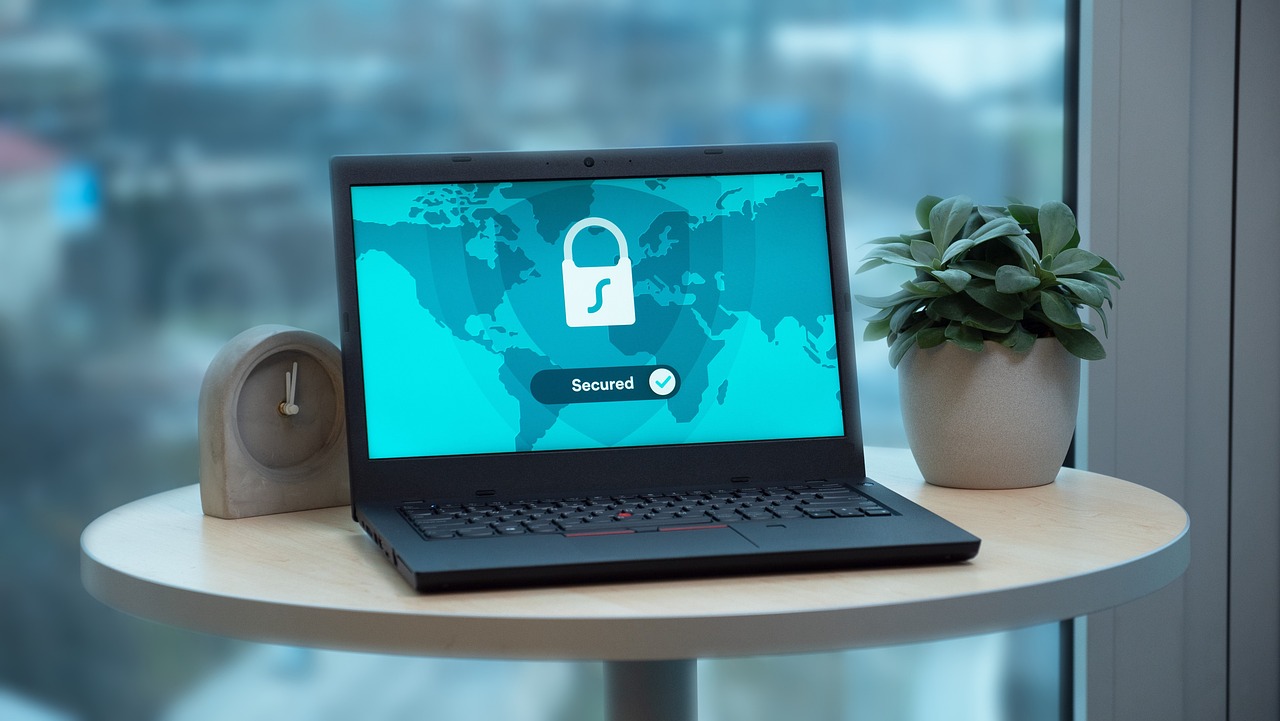
Recognizing Red Flags
When diving into the world of online relationships, it's essential to keep your eyes peeled for red flags that may indicate something isn't quite right. Just like in any relationship, whether online or offline, there are signs that can alert you to potential danger or manipulation. These red flags can range from subtle hints to glaring warnings that should never be ignored. So, how do you spot them? Let's break it down.
First and foremost, if someone is overly secretive about their personal life, consider this a major red flag. While it's normal to have some privacy, if your online partner avoids sharing basic information or becomes defensive when you ask questions, it could be a sign that they're hiding something. Think of it like trying to piece together a puzzle; if some pieces are missing, the picture will never be complete.
Another concerning behavior is inconsistency in their stories. If you find that your online partner frequently contradicts themselves or changes details about their life, it may indicate that they are not being truthful with you. This inconsistency can be a classic sign of catfishing or deceitful intentions. It’s like a game of telephone where the message gets distorted every time it’s passed along, and in the end, you’re left with a story that doesn’t add up.
Additionally, pay attention to how they react to your boundaries. If they push you to share personal information or pressure you into meeting in person before you’re ready, it’s a clear indication that they may not respect your comfort level. Healthy relationships thrive on mutual respect and understanding, and if your partner is disregarding your boundaries, it's a sign to reconsider the relationship. This behavior can be likened to a red light in a traffic signal—it's a warning to stop and reassess the situation before proceeding.
Lastly, if your online partner exhibits controlling behavior, such as wanting to know where you are at all times or who you're talking to, it’s a significant red flag. Control can manifest in many forms, including jealousy or possessiveness, and these traits can lead to unhealthy dynamics. Remember, a healthy relationship should empower you, not constrain you.
To help you better understand these red flags, here’s a quick table summarizing some common warning signs:
| Red Flag | Description |
|---|---|
| Secrecy | Avoids sharing personal information and becomes defensive. |
| Inconsistency | Changes stories or provides contradictory information. |
| Boundary Issues | Pressures you to share personal details or meet in person. |
| Controlling Behavior | Wants to monitor your activities and interactions. |
In conclusion, being vigilant about these red flags can significantly enhance your safety in online relationships. Trust your instincts; if something feels off, it probably is. Remember, it's always better to be safe than sorry. By recognizing these warning signs early on, you can protect yourself and ensure that your online interactions remain positive and healthy.
Q: What should I do if I notice a red flag in my online relationship?
A: If you notice a red flag, it's crucial to take a step back and evaluate the situation. Trust your gut feelings and consider discussing your concerns with someone you trust. If necessary, don't hesitate to cut off communication.
Q: How can I protect myself from catfishing?
A: To protect yourself from catfishing, always verify the information your partner shares. Conduct reverse image searches on their photos, video chat before meeting in person, and be cautious of anyone who avoids these steps.
Q: Is it safe to share personal information with someone I met online?
A: It's best to be cautious about sharing personal information with someone you met online. Only share what you feel comfortable with and avoid disclosing sensitive details until you have established trust.

Communicating Boundaries
Establishing and communicating personal boundaries is absolutely vital in online relationships. Think of boundaries as the invisible fence that keeps your emotional space safe and secure. Without them, you might find yourself in situations that feel uncomfortable or even unsafe. So, how do you effectively communicate these boundaries to others in the digital world? Well, it starts with being clear about your own needs and limits.
First off, it's essential to understand that everyone has different comfort levels when it comes to sharing personal information, engaging in conversations, or even the pace of the relationship. For instance, you might be comfortable sharing your hobbies and interests but not ready to divulge your home address or financial details. It's perfectly okay to set these limits! A good way to start is by having an open conversation with the other person about what feels right for you.
When discussing your boundaries, consider using “I” statements. This technique allows you to express your feelings without sounding accusatory or confrontational. For example, instead of saying, “You make me uncomfortable when you ask too many questions,” try saying, “I feel overwhelmed when conversations get too personal too quickly.” This way, you’re taking ownership of your feelings and inviting a dialogue rather than placing blame.
It’s also helpful to remember that boundaries are not just about saying “no.” They’re also about defining what you are comfortable with. For instance, if you enjoy texting every day but don’t want to video chat just yet, communicate that clearly. You might say, “I love chatting with you through text, but I’m not ready for video calls just yet.” This clarity can prevent misunderstandings and foster a more respectful connection.
Another important aspect of communicating boundaries is consistency. If you set a boundary, stick to it. If you find yourself bending the rules, it can send mixed signals to the other person. Just like in real life, online relationships thrive on trust and respect. If your boundaries are not respected, it’s crucial to reassess the relationship. Don’t hesitate to reiterate your limits if you feel they’re being crossed. Remember, you have every right to protect your emotional well-being!
In addition, it’s beneficial to encourage the other person to share their boundaries as well. This mutual exchange not only strengthens your relationship but also builds a sense of understanding and respect. You could say something like, “I’d love to know what your boundaries are, too. It’s important to me that we both feel comfortable.” This creates a safe space for both parties to express their needs, fostering a healthier online interaction.
Lastly, don’t forget that boundaries can evolve. As you get to know someone better, your comfort levels might change. It’s perfectly fine to revisit and adjust your boundaries as needed. Just like a growing plant, relationships require nurturing and occasional pruning to thrive. By communicating openly and honestly about your boundaries, you’re laying the groundwork for a strong, respectful connection that can flourish in the digital landscape.
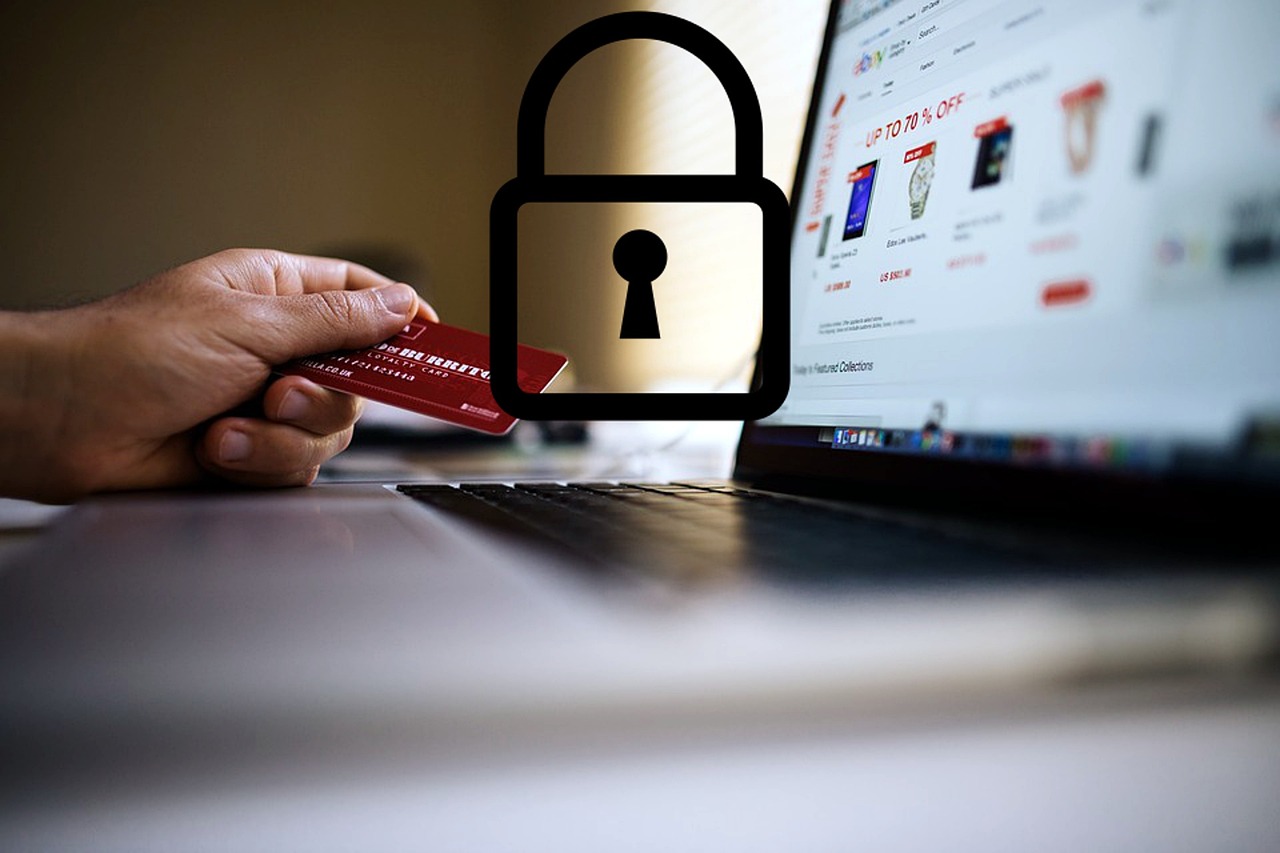
Protecting Personal Information
In the vast digital landscape, protecting your personal information is more crucial than ever. Think of your personal data as a treasure chest; you wouldn’t leave it unlocked in a public square, right? Similarly, safeguarding your information online requires vigilance and smart practices. The first step in this journey is understanding what constitutes personal information. This includes your name, address, phone number, email, and even your social media profiles. Sharing too much can make you vulnerable to identity theft, scams, and other malicious activities.
When engaging in online relationships, it’s essential to be selective about what you choose to share. For instance, consider the following guidelines:
- Limit personal details: Avoid sharing sensitive information like your home address or financial details until you fully trust the other person.
- Be cautious with photos: Pictures can reveal a lot about you. Ensure that your images do not provide identifiable information, such as your home or workplace.
- Think before you post: Always ask yourself, “Would I be comfortable with this information being public?” before sharing anything online.
Another vital aspect of protecting your personal information is understanding the privacy settings on the platforms you use. Most social media sites and communication apps offer various privacy controls that allow you to manage who sees your information. By adjusting these settings, you can significantly reduce the risk of unwanted exposure. For example, you might want to limit your profile visibility to friends only or restrict who can send you messages. Taking a few moments to review these settings can make a world of difference.
Moreover, be wary of the information you provide during online interactions. It’s common for people to share their life stories in online conversations, but revealing too much too soon can be risky. Establishing trust takes time, and it’s perfectly acceptable to keep certain details private until you feel more secure in the relationship. Remember, the internet is a double-edged sword; while it can connect you with amazing people, it can also expose you to those with less than honorable intentions.
In addition to being cautious about what you share, it's crucial to stay informed about the latest security threats. Cybercriminals constantly devise new methods to exploit unsuspecting individuals. Regularly updating your knowledge about online safety can empower you to make informed decisions. For instance, familiarizing yourself with common scams, such as phishing emails or fake profiles, can help you recognize and avoid potential traps.
Lastly, always trust your instincts. If something feels off in an online interaction, don’t hesitate to step back. Your gut feeling is often your best ally when it comes to protecting yourself. If you ever feel uncomfortable or threatened, it’s crucial to distance yourself from the situation and seek help if necessary. Remember, your safety should always be your top priority.

Using Privacy Settings
In today's digital landscape, understanding how to manage your privacy settings is more important than ever. It's like having a fortress around your personal information, ensuring that only those you trust can gain access. Many social media platforms and communication apps provide various privacy controls that allow you to dictate who sees your information, and it’s crucial to take advantage of these features. Imagine you have a beautiful garden; you wouldn’t leave the gate wide open for anyone to stroll in, right? Similarly, your online presence deserves the same level of protection.
First off, let's talk about the basics. Most platforms offer options to set your profile to private, which restricts visibility to only those you approve. This is a fundamental step in safeguarding your personal information. When your profile is public, anyone can see your posts, photos, and even your friends list. By switching to private, you can control who gets a glimpse into your life. Additionally, be diligent about reviewing your friend or follower lists regularly. Sometimes, people slip through the cracks, and it’s essential to ensure that only trusted individuals have access to your personal space.
Moreover, be aware of the information you share in your posts. Even with privacy settings, oversharing can lead to unwanted attention. When you post about your location, daily activities, or personal details, you may inadvertently open the door for unwanted interactions. It’s always wise to think twice before hitting that “post” button. Ask yourself: “Is this information something I’d be comfortable sharing with a stranger?” If the answer is no, then it’s best to keep it to yourself.
Another vital aspect of privacy settings is customizing who can see your posts. Many platforms allow you to choose different audiences for different posts. For instance, you might want to share a funny meme with your friends but keep your more personal thoughts shared only with close family. This granularity helps maintain your privacy while still allowing you to express yourself freely. Always take the time to adjust these settings before sharing anything, and remember that it’s better to be safe than sorry.
Lastly, it’s essential to stay updated on the privacy policies of the platforms you use. They often change their settings and policies, sometimes without much notice. Regularly checking for updates can help you stay informed about any new features or changes that may impact your privacy. It’s like keeping an eye on the weather before heading out; you wouldn’t want to get caught in the rain without an umbrella!
In summary, utilizing privacy settings is a proactive approach to protecting your online relationships and personal information. By taking control of your digital footprint, you can create a safer online environment and enjoy the connections you make without unnecessary worry. Always remember, your online safety is in your hands!
- What are privacy settings? Privacy settings are controls provided by social media platforms and apps that allow users to manage who can see their information and posts.
- How can I adjust my privacy settings? You can usually find privacy settings in the account settings or privacy section of the app or website you are using.
- Why is it important to use privacy settings? Privacy settings help protect your personal information from unwanted exposure and ensure that only trusted individuals can access your content.
- Can privacy settings prevent all risks? While they significantly reduce risks, no setting is foolproof. It's essential to remain vigilant and cautious about what you share online.
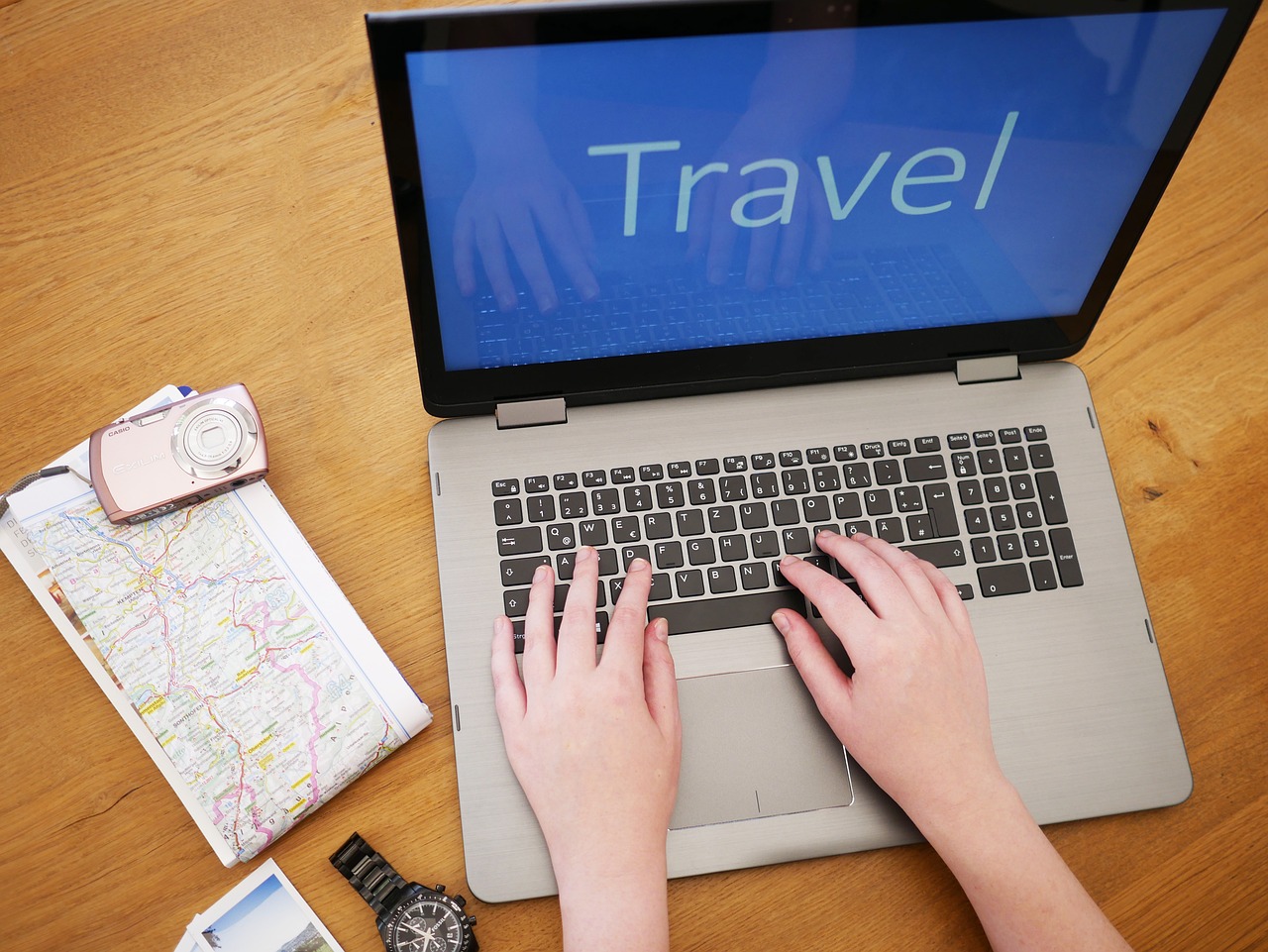
Reporting Suspicious Behavior
In the vast landscape of online relationships, it's not uncommon to encounter situations that raise eyebrows or send red flags waving. Whether it's a sudden change in someone's behavior or messages that feel off, knowing how to handle these situations is crucial for your safety. The first step in addressing suspicious behavior is to trust your instincts. If something feels wrong, it probably is. But what should you do next? Reporting such behavior is not just about protecting yourself; it's also about safeguarding others in the community.
Most platforms have built-in mechanisms for reporting inappropriate behavior. This often involves a straightforward process where you can flag messages, profiles, or comments that seem suspicious or harassing. For instance, many social media sites and dating apps provide a 'Report' button right next to the content in question. By clicking this button, you can alert the platform's moderators to investigate the issue. It's essential to provide as much detail as possible when making a report, as this helps the moderators understand the context and severity of the situation.
Here are some common types of suspicious behavior you might encounter:
- Inconsistent Information: If someone frequently changes their story or provides conflicting details about their life, it could be a sign of deception.
- Excessive Pressure: If a person pushes you to share personal information or meet in person before you feel comfortable, this is a major red flag.
- Unsolicited Gifts or Money Requests: Be wary of anyone who offers gifts or asks for money, especially if you haven't established a strong relationship yet.
Once you've reported the behavior, it's important to take additional steps to protect yourself. Consider blocking the individual if you feel threatened or uncomfortable. This action prevents them from contacting you further and can provide peace of mind. Always remember that your safety is paramount. You should never feel obligated to continue interacting with someone who makes you uncomfortable.
Moreover, staying informed about the reporting policies of the platforms you use can empower you. Each platform has its own set of guidelines and procedures for reporting suspicious behavior, so take a moment to familiarize yourself with them. This knowledge can be a powerful tool in ensuring you and others remain safe while navigating the complex world of online relationships.
In addition to reporting suspicious behavior, consider discussing your experiences with friends or family. Sharing your concerns can provide emotional support and may also help you gain perspective on the situation. Remember, it's always better to err on the side of caution. If you feel something is off, don’t hesitate to take action.
Frequently Asked Questions
- What are the main risks associated with online relationships?
Online relationships can expose individuals to various risks, including catfishing, scams, and privacy breaches. It's crucial to stay informed about these dangers to protect yourself and maintain a safe online presence.
- How can I create a strong password?
To create a strong password, use a mix of uppercase and lowercase letters, numbers, and special characters. Avoid using easily guessable information like birthdays or names. Consider using a password manager to keep track of your passwords securely.
- What is two-factor authentication and why is it important?
Two-factor authentication (2FA) is an extra layer of security that requires not only a password but also a second piece of information, like a code sent to your phone. This helps protect your accounts from unauthorized access, especially in online relationships.
- How do I choose a reliable platform for online interactions?
When selecting a platform, look for reputable websites and apps with positive reviews and strong security measures. Research the platform’s privacy policies and user safety features to ensure a safer environment for your online relationships.
- What are some red flags to watch for in online interactions?
Common red flags include reluctance to share personal information, overly controlling behavior, and inconsistent stories. If someone makes you feel uncomfortable or pressured, it's essential to trust your instincts and reconsider the relationship.
- How can I effectively communicate my boundaries online?
Be clear and direct about your boundaries from the start. Use simple language to express what you are comfortable with and what you aren’t. Respecting each other’s boundaries is crucial for maintaining a healthy online relationship.
- What personal information should I keep private?
It's best to keep sensitive information like your home address, phone number, and financial details private. Share only what you feel comfortable with and always think twice before disclosing personal information to someone online.
- How can I use privacy settings to protect myself?
Most social media and communication platforms offer privacy settings to control who can see your information. Regularly review and adjust these settings to ensure that only trusted individuals have access to your personal data.
- What should I do if I encounter suspicious behavior online?
If you notice suspicious behavior, document the interactions and report them to the platform. Most sites have procedures for reporting harassment or inappropriate conduct, and taking action helps promote a safer online community.



















